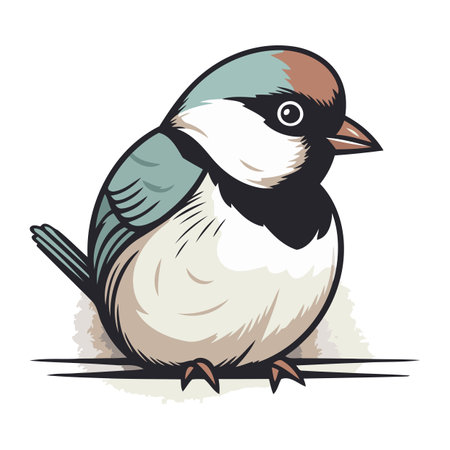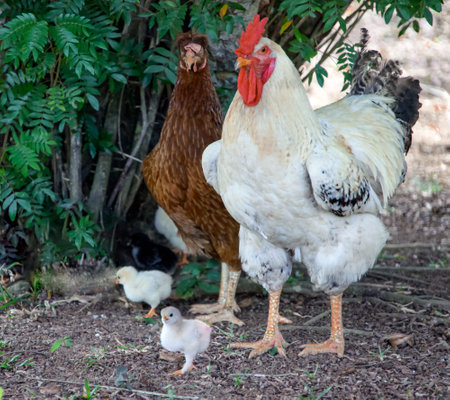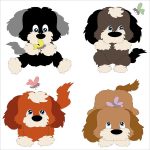1. Introduction to Dove and Pigeon Care
Doves and pigeons are wonderful pets that have been domesticated for thousands of years. They are known for their gentle nature, intelligence, and adaptability, making them a great choice for both beginner and experienced bird owners.
The History of Domestication
Pigeons were one of the first birds domesticated by humans, with records dating back over 5,000 years. They have been used for communication, companionship, and even religious purposes in various cultures. Doves, closely related to pigeons, have also been cherished for their symbolism of peace and love.
Why Doves and Pigeons Make Great Pets
- Gentle Temperament: These birds are typically calm and easy to handle.
- Low Maintenance: Compared to other pets, doves and pigeons require minimal grooming.
- Quiet Companions: Unlike parrots, they do not screech or make loud noises.
- Strong Bonding: They recognize their caregivers and can form deep connections.
- Variety of Colors & Breeds: There are many beautiful breeds with unique appearances.
Basic Care Principles
Caring for doves and pigeons involves providing proper housing, nutrition, and attention to their behavior. Here is a quick overview of their basic needs:
| Category | Basic Requirement |
|---|---|
| Housing | A spacious cage or aviary with perches and safe nesting areas. |
| Diet | A balanced mix of seeds, grains, fresh vegetables, and clean water. |
| Social Interaction | Daily interaction with owners or other birds to prevent loneliness. |
| Health Care | Regular cleaning of habitat and monitoring for signs of illness. |
| Exercise | Time outside the cage for free flight in a safe environment. |
Understanding Their Behavior
Doves and pigeons communicate through body language and soft cooing sounds. Recognizing their behavior helps build trust and ensures they feel comfortable in their home environment. Some common behaviors include:
- Cooing: A sign of contentment or communication.
- Bobbing Head Movements: Often seen when they are excited or exploring.
- Puffed Feathers: Can indicate relaxation or an attempt to stay warm.
- Nesting Behavior: A sign that they feel secure in their space.
- Tame Interaction: Hand-raised birds may perch on your shoulder or follow you around.
Doves and pigeons are rewarding companions when given proper care. Understanding their history, behavior, and basic needs will ensure they live happy and healthy lives in your home.
2. Proper Housing and Enclosures
Providing a safe and comfortable living space is essential for keeping doves and pigeons healthy and happy. Whether you choose to house them indoors or outdoors, their enclosure should meet specific requirements to ensure their well-being.
Cage Size and Space Requirements
Doves and pigeons need enough space to stretch their wings and move around comfortably. The ideal cage size depends on the number of birds you are housing.
| Number of Birds | Recommended Cage Size (L x W x H) |
|---|---|
| 1-2 Birds | 24″ x 24″ x 24″ |
| 3-4 Birds | 36″ x 24″ x 24″ |
| Larger Flock | Aviary or Spacious Outdoor Loft |
Perches and Nesting Areas
Doves and pigeons enjoy perching at different heights. Providing a variety of perches made from natural wood helps maintain their foot health. Avoid using smooth plastic or metal perches, as they can be uncomfortable.
- Nesting Spots: If you plan to breed your birds or simply offer them a cozy place to rest, provide nest boxes or shallow baskets lined with soft nesting materials like straw or shredded paper.
- Sheltered Areas: Ensure there are enclosed spaces where birds can retreat for privacy and security.
Environmental Considerations
The location and setup of the enclosure play a crucial role in your birds comfort. Here are some key factors to consider:
Indoor Housing
- Avoid Direct Sunlight: Place the cage away from direct sunlight to prevent overheating.
- No Drafts: Keep the enclosure in a draft-free area to avoid sudden temperature changes.
- Adequate Ventilation: Ensure proper airflow without exposing birds to cold breezes.
- No Toxic Fumes: Keep them away from kitchens, smoke, and strong household chemicals.
Outdoor Housing
- Pest Protection: Use wire mesh small enough to prevent predators like rats or raccoons from getting in.
- Shelter from Weather: Provide covered areas to protect against rain, wind, and extreme heat.
- Sufficient Space: Outdoor lofts should be spacious enough for flight exercise.
- Cleansing Routine: Regularly clean droppings, food scraps, and water bowls to prevent disease.
A well-designed enclosure ensures that your doves and pigeons stay stress-free and comfortable. By considering cage size, perch placement, nesting areas, and environmental factors, you can create a home that supports their natural behaviors and keeps them thriving.

3. Nutrition and Feeding Guidelines
Providing the right nutrition for your doves and pigeons is essential for their health and longevity. A well-balanced diet includes a mix of seeds, grains, supplements, and occasional treats. Below, we’ll break down what makes a healthy diet and offer tips on feeding schedules.
Seeds and Grains: The Foundation of Their Diet
Doves and pigeons primarily thrive on a diet rich in seeds and grains. A good mix will ensure they get the necessary nutrients while keeping them satisfied.
| Food Type | Examples | Benefits |
|---|---|---|
| Seeds | Safflower seeds, millet, sunflower seeds | Provide essential fats and proteins |
| Grains | Corn, wheat, barley, oats | Good source of carbohydrates for energy |
| Pellets | Pigeon or dove-specific pellets | Balanced nutrients to support overall health |
The Importance of Supplements
While a seed-and-grain diet is a great start, supplements help fill in any nutritional gaps. Calcium is particularly important for strong bones and eggshell formation in breeding birds.
- Calcium: Crushed eggshells or cuttlebone provide necessary calcium.
- Mineral Grit: Helps with digestion by grinding food in their gizzard.
- Vitamins: Occasional vitamin drops can boost overall health.
Treats: Keeping It Healthy and Fun
Treats should be given in moderation to prevent obesity while providing variety and enrichment.
- Fruits: Apples (seedless), berries, grapes—great for vitamins!
- Vegetables: Leafy greens like spinach and kale add extra nutrients.
- Avoid: Avocado, chocolate, caffeine—these are toxic to birds.
Feeding Schedule & Tips
A consistent feeding routine helps maintain your bird’s health and prevents overeating or malnutrition.
| Time of Day | Feeding Recommendation |
|---|---|
| Morning | Main feeding with fresh seeds/grains and water change. |
| Noon (Optional) | A small portion of fruits or vegetables as a snack. |
| Evening | A lighter meal with supplemental pellets or treats. |
TIPS:
- Fresh Water Daily: Always provide clean drinking water to prevent dehydration.
- Avoid Overfeeding: Too many seeds can lead to obesity; balance their intake.
- Diversify Their Diet: Rotating food options keeps them engaged and ensures balanced nutrition.
A proper diet plays a crucial role in keeping doves and pigeons healthy. By offering the right mix of seeds, grains, supplements, and occasional treats, you ensure they stay active and happy!
4. Understanding Dove and Pigeon Behavior
Understanding the behavior of doves and pigeons is key to providing them with a happy and healthy life. These birds have unique ways of communicating, interacting, and expressing their emotions. By learning their body language, vocalizations, and social habits, you can build a strong bond with your pet.
Common Behaviors and Their Meanings
Doves and pigeons display various behaviors that indicate their mood, comfort level, and social status. Here are some common behaviors and what they mean:
| Behavior | Meaning |
|---|---|
| Bowing and cooing | A courtship or bonding behavior, often seen when they are comfortable with you. |
| Puffing up feathers | A sign of relaxation or an attempt to appear larger when feeling threatened. |
| Tail fanning | A way to show excitement or attract attention. |
| Nodding head while walking | A natural movement that helps with depth perception. |
| Biting or pecking lightly | A sign of curiosity or affection; harder pecks may mean they feel threatened. |
| Nesting behavior | A sign that they are ready to breed or looking for a safe place to rest. |
Vocalizations: What Your Bird Is Saying
Doves and pigeons use different sounds to communicate with their owners and other birds. Recognizing these sounds can help you understand their needs better:
- Cooing: A soft, rhythmic sound used for bonding or showing contentment.
- Loud cooing: Often used by males during courtship or to claim territory.
- Squeaking: A sound made by young pigeons (squabs) when they are hungry.
- Wing clapping: A sharp sound made by flapping wings together, usually as a display of dominance or excitement.
- Muffled grunting: Can indicate discomfort or mild irritation.
The Social Nature of Doves and Pigeons
Pigeons and doves are highly social birds that thrive on companionship. If kept alone, they will bond closely with their human caretaker. They enjoy gentle interaction and may even perch on your shoulder or hand once they trust you.
Bonds with Other Birds
If you have multiple doves or pigeons, you will notice them grooming each other, sitting close together, and sometimes playfully pecking at one another. These behaviors strengthen their social bonds.
Bonding with Your Pet Dove or Pigeon
Earning your bird’s trust takes time and patience. Here are some tips to develop a strong relationship with your pet:
- Sit quietly near them daily: Let them get used to your presence without forcing interaction.
- Speak softly: Talking in a calm tone helps them recognize your voice as non-threatening.
- Offer treats by hand: Using millet sprays or small seeds can encourage them to approach you willingly.
- Avoid sudden movements: Quick actions may startle them, so move slowly when handling them.
- Create a routine: Consistency builds trust; feeding and interacting at the same times daily helps them feel secure.
Pigeons and doves are intelligent birds capable of forming deep connections with their caretakers. By understanding their behaviors, vocalizations, and social nature, you can create a meaningful bond with your feathered friend.
5. Health and Wellness Care
Keeping your dove or pigeon healthy is essential for ensuring a long and happy life. Understanding common health concerns, practicing preventative care, recognizing signs of illness, and knowing when to seek veterinary help can make a big difference in your birds well-being.
Common Health Concerns
Doves and pigeons are generally hardy birds, but they can still experience health issues. Here are some common concerns to be aware of:
| Health Issue | Symptoms | Possible Causes |
|---|---|---|
| Respiratory Infections | Sneezing, wheezing, nasal discharge, open-mouth breathing | Poor air quality, bacterial or viral infections |
| Parasites (mites, lice) | Excessive scratching, feather loss, visible parasites on skin or feathers | Poor hygiene, exposure to infected birds |
| Canker (Trichomoniasis) | Mouth sores, difficulty swallowing, weight loss | A protozoan infection often spread through contaminated water |
| Sour Crop | Puffy crop, bad breath, regurgitation | Bacterial or yeast infection from spoiled food or poor diet |
| Bumblefoot | Sores or swelling on feet, difficulty perching or walking | Poor perching surfaces, obesity, injury |
Preventative Care
The best way to keep your bird healthy is through proper care and prevention. Here are some key steps:
- A Clean Environment: Regularly clean the cage or aviary to prevent bacteria buildup.
- A Balanced Diet: Provide high-quality pigeon or dove feed supplemented with fresh fruits and vegetables.
- Adequate Exercise: Allow time for flight and movement to maintain muscle strength and circulation.
- Avoid Stress: Keep their living environment calm and free from excessive noise or sudden changes.
- Avoid Contact with Sick Birds: Quarantine new birds before introducing them to your existing flock.
- A Regular Health Check: Observe their behavior daily for any unusual signs.
Recognizing Signs of Illness
If you notice any of the following symptoms, your bird may be sick:
- Lethargy or sitting fluffed up for extended periods.
- A decrease in appetite or weight loss.
- Trouble breathing or unusual sounds while breathing.
- Nasal discharge, watery eyes, or crusty beak.
- Poor feather condition or excessive molting at the wrong time of year.
- Droppings that appear unusually watery, discolored, or have an odd odor.
- Sitting at the bottom of the cage instead of perching.
When to Seek Veterinary Help
If you notice persistent symptoms or sudden drastic changes in your bird’s behavior, it’s crucial to consult an avian veterinarian as soon as possible. Early intervention can make a significant difference in recovery. Regular annual check-ups can also help detect potential issues before they become serious.
Your dove or pigeon depends on you for proper care. By staying informed about their health and wellness needs, you can ensure they live a long and fulfilling life by your side.
6. Conclusion and Responsible Ownership
Owning a dove or pigeon is a long-term commitment that requires dedication, knowledge, and care. These birds can live for many years, and providing them with a safe environment, proper nutrition, and companionship ensures they thrive. Responsible ownership goes beyond just meeting their basic needs—it also involves understanding their behavior, respecting their instincts, and ensuring they have a fulfilling life.
Ethical Considerations
When caring for doves and pigeons, it’s important to consider ethical aspects of their well-being. Birds should never be kept in cramped cages or left without social interaction. They are intelligent creatures that require mental stimulation and bonding opportunities. If you decide to adopt or rescue a bird, ensure you can provide the right level of care before making the commitment.
Key Ethical Responsibilities
| Responsibility | Description |
|---|---|
| Proper Housing | Provide a spacious, clean environment where they can move freely. |
| Balanced Nutrition | Offer a diet that meets their nutritional needs, including seeds, grains, and fresh vegetables. |
| Social Interaction | Ensure they receive enough companionship from humans or other birds. |
| Medical Care | Seek veterinary care when needed and monitor their health regularly. |
| Lifelong Commitment | Pigeons and doves can live up to 15-20 years; be prepared for long-term care. |
Encouraging Lifelong Care and Companionship
Doves and pigeons form strong bonds with their caretakers. By spending time with them daily, talking to them gently, and respecting their space, you create an environment where they feel safe and loved. Whether you keep them indoors as companions or provide an outdoor aviary setup, always prioritize their happiness and well-being.
The Importance of Adoption and Rescue
If youre considering bringing a dove or pigeon into your life, look into adoption options first. Many domestic pigeons are abandoned after being used for racing or ceremonies. Providing a home for a rescued bird not only gives them another chance at life but also helps reduce the number of neglected birds in need of care.
A Rewarding Experience
Caring for doves and pigeons is a fulfilling journey filled with companionship and learning. These birds bring joy to those who understand their needs and nurture them properly. By being a responsible owner, you ensure that your feathered friend lives a happy, healthy life while strengthening the bond between human and bird.


